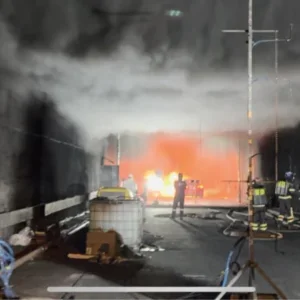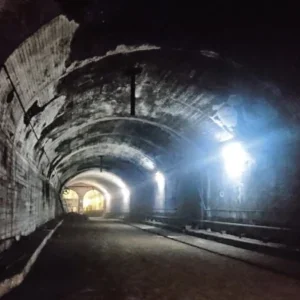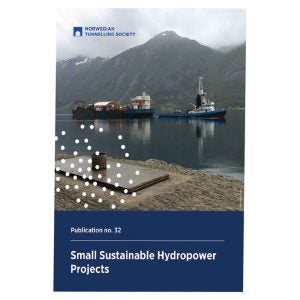Some 110m under the outskirts of Mumbai a dozen workers are excavating the launching chamber for a TBM drive towards the city. There are fears of terrorism attacks on the water supply and so Indian contractor Soma has been awarded the project to bury the above ground water pipelines.
The crew works an Atlas Copco ROC 203 drill rig to break out the rock and haul it up the shaft with a gantry crane and bucket. However, the shaft and the chamber are thick with smoke and dust. There is no sign of any ventilation for the workers, and after just a few minutes it becomes difficult to breathe. Workers wear dust masks, which offer little protection.
Soma general manager Vishnu Sharma later denies the absence of ventilation claiming: “We were using compressed air from the compressor unit which is at the top of the shaft. The tunnel ventilation fan station comprising motor size 110kW and two fans from Zitron were mobilised and put under operation during shaft & assembly chamber construction.”
While on site in February, T&TI is told that ventilation would be installed once the TBM is delivered. The delivery of the TBM is significant to the organisation of the project. Soma is in charge of the shaft and launch chamber. It has subcontracted the tunnel boring to Herrenknecht subsidiary UTS, which takes control of the site after TBM arrival. Rajiv Sharma of Herrenknecht says ventilation will be installed for its bore.
It is no secret that the quality of health and safety on site varies wildly from project to project and county to country. And in India there is not the same pressure on health and safety as there might be elsewhere.
AECOM project manager for the Kolkata metro project Chris Schulz explains that Indian contractors need to bid in JV with an international partner to hit prequalification requirements. Sometimes it is only the presence of an international company on site that brings about better health and safety. But as contractors become more experienced, they will need less support.
National Safety Council
The National Safety Council of India (NSC) is making strong efforts to turn the tide on health and safety in the country. Entries for its annual safety awards closed last month. Along side the awards the NSC is publishing technical papers and offering training. In 2010 the NSC had more than 4000 participants in its safety courses.
India’s construction market is booming as the country maintains the fastest growing GDP in the world. The tunneling market is mainly fueled by demands for metro projects in the major cities – such as the Bangalore Metro– spurred on by the success of the Delhi Metro, and water transfer projects such as the Mumbai Water Supply IV and the Alimineti Madhava Reddy (AMR).
Workers on the Bangalore metro kitted out in boots, hard hats and vests






